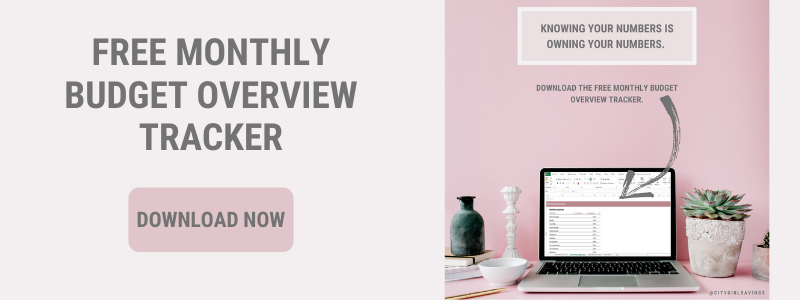A budget is a tool. A budget is a necessity. A budget is not designed to make your life miserable. So often I hear people complain about budgeting, as if the budget is the problem. Unfortunately, it’s a person’s income, spending habits, or a combination of the 2 that’s the problem. The budget simply brings that problem to light. Once you start letting go of the negative mindset you have around budgeting, you’ll open the door for you to embrace an effective budget that works!
If you need a simple start, make sure you grab a copy of my free Monthly Budget Overview Tracker, as it will help you get your feet wet with budgeting. If you’re venturing out on the budgeting journey, or deciding to try it again, make sure your budget has 5 specific things. I’m sharing 5 things an effective budget always has. If you include this list of 5 things in your budget, you’ll be set up for success.
5 Things an Effective Budget Always Has
#1 Fun Spending
The people who think a budget means they can’t have fun are the people who fail to account for fun in their budget! Fun spending is one of the most important categories to include in your budget, because without it, you’re destined for failure.
Let me elaborate: If you fail to add fun into your budget because you want to focus on reaching your money goals, you will deprive yourself. You can only deprive yourself for so long before you inevitably splurge. That splurge could undo all of your damage and some. Instead, factor in fun (at a reasonable amount), so you can still enjoy life, but also work towards your goals.
Another scenario is not including fun because you didn’t know you should. In this case, your budget is instantly set up for failure the minute you buy something not included in your budget. This could lead you to give up on your budget altogether.
Avoid any scenario that skips the fun spending by factoring in an amount that is reasonable for your situation. A little is better than nothing and can keep you sane as you trek along your budgeting journey.
#2 A Miscellaneous Category
As much as I’d like to think I can plan for everything, I’ve experienced enough to know that I’ll never be able to do it. I’ll never get things to go 100% my way. I stopped expecting that a long time ago and I’m a much calmer, less-stressed individual because of it. In terms of budgeting, a Miscellaneous category can be a great way to capture the “unplanned”.
The Miscellaneous category is your catch-all. Any expense that you didn’t plan for, or that doesn’t fall under other categories of your budget can be tracked under Miscellaneous. As you get more familiar with your money patterns, you can adjust how much gets allocated to this category. You can also pinpoint expenses that are recurring and should be factored in elsewhere.
#3 Room for Things to Go Unexpectedly
The Miscellaneous category is a great way to plan for unexpected expenses, but an effective budget pulls that thread even further – by leaving from for things to go unexpectedly. What I mean by this is having some “buffer” in your numbers to account for overspending in one area, underspending in another, or a change in income.
Things may go unexpectedly well or unexpectedly bad. Your goal is to have a budget that helps you bounce back as quickly as possible, no matter how things go. Your Miscellaneous category helps with this, leaving an extra amount in your checking helps with this, and a savings account helps with this. We don’t know what we don’t know, so the best we can prepare for the unknown, the better off we’ll be.
#4 Money Allocated to Goals
I promise you – you will love your budget so much more if it allocates money to your goals. This will help you feel like your budget is working with you, not against you. Even if you don’t have much to put towards your goals, having something allocated to them every month will make a huge difference in your psyche.
$5 to travel savings. An extra $50 to debt. $100 to investments. These are all examples of money allocated to goals – whatever it looks like for you, make sure your budget includes them. That way you’ll always feel like you’re working towards the things that matter to you.
#5 A Means of Tracking
The final thing an effective budget always has is a means of tracking. Basically, a way to know if you’re actually sticking to the budget or not. There are a handful of different ways you can track your spending, so find a method that works for you. Check out 5 Easy Ways to Organize Your Spending for more insight.
While tracking is separate from your budget, you can merge the two. My budget includes a tracking system, so I can see exactly how much is being spent, compared to what I planned to spend. It doesn’t matter how you go about tracking your spending, just make sure you do, so you know if things need to change with your spending patterns.
Related: 6 Budget Goals Every Woman Should Have
Budgeting can work for everyone! If you haven’t been successful with budgeting, I would encourage you to look at your budget and make sure you’re not leaving out any of the critical things I shared today. If so, you may just have the missing piece to your effective budget plan!
When it comes to budgeting, what do you struggle with the most? Which of the things I listed above do you already have in your budget? Share your thoughts and questions by dropping a comment below!
-Raya
The CGS Team






